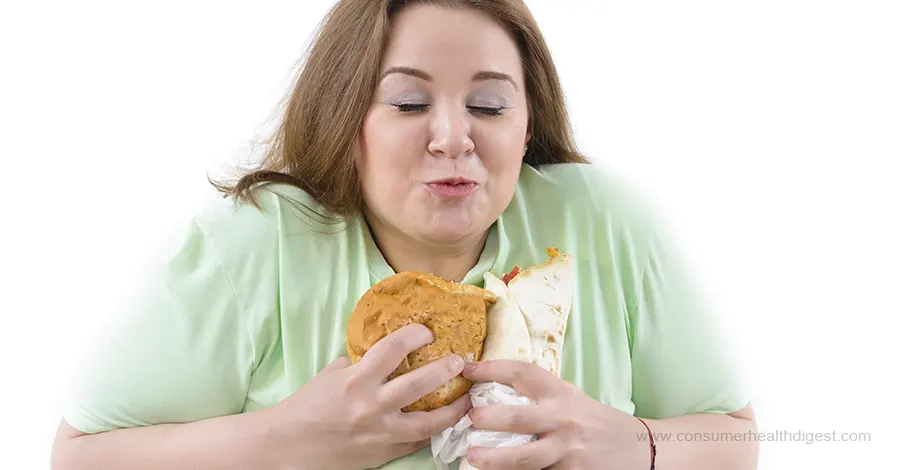Overview
Everything you do is a reflection of who you are. We are, sometimes, not even aware of the fact that every aspect of our life and every move we make reflects our personality. Eating habits and what they reveal about your personality. We think we do some things just because we are supposed to do them. You can tell a lot about someone’s character by observing their choices, and the same thing is with food. Your food choices are linked with your personality type, and this topic will be discussed further in the article.

Spicy Food is Associated with Thrill-Seeking
According to the study presented at 2013 Institute of Food Technologists Annual Meeting and Food Expo people who love spicy food are risk-takers. To find that out, researchers assessed 97 people who were supposed to fill out a questionnaire. Then, scientists also asked them to describe how they feel when they are eating increasingly spicy food after it gives them a taste of capsaicin (an ingredient which makes chili peppers spicy). They discovered that people who are thrill-seekers and open to many new experiences still loved to eat a tasty meal even after the burning intensity increased.
Moreover, non-daredevils enjoyed that food less. This isn’t the first time spicy food was associated with a particular personality type. In previous studies, spicy food was linked with an increased desire for gambling, riding a rollercoaster, driving fast cars, and other experiences associated with thrill-seeking. The link between spicy food and thrill-seeking has an entirely scientific explanation.
Spicy foods create a sensation in the mouth that is interpreted by the brain as burning or being on fire. When your body realizes there is, actually, no real danger, and you are not literally on fire, the brain interprets that sensation as thrill, similar to the sensation you get from riding the rollercoaster.
People-Pleasers Overeat When They Have Company

Overeating Food Disorder. Shutterstock Image
Overeating in social situations is a sign that you like to do things for other people.People usually tend to eat more when they have company. It is mostly because they have a good time and don’t think about the food. They eat subconsciously.
According to one research that happens when people mimic their companions. The scientists included pairs of young women and monitored how they act or eat. [1]
They revealed that people tend to mimic their companions’ eating habits. This means that someone who is a big eater can easily set a tempo for the entire crowd. How many times did you have a dinner party where more food was eaten than on the last one you arranged? That happens because people subconsciously want to catch up with the person who’s the fastest eater in the company.
Case Western Reserve University conducted a study about the same subject, and the results showed that there is more to this situation that is just mimicking the companion.All the participants had a questionnaire to do, and scientists discovered that people-pleasers are more prone to eating more when they have company. Also, people-pleasers eagerly accepted candy offered to them by an actor who pretended to be a participant of the study, and they took more than other participants.
Overly Emotional People Tend to Eat Snacks Secretly

Foods That Are Extremely Low in Calories. Shutterstock Image
We all know that some people are emotional eaters, and we all have that friend who eats more when he or she is feeling sad or depressed. Sometimes we do it as well. Emotional eating is linked to sad or happy feelings.Food is often used as a mechanism that reduces stress, but more emotional people also have different habits when it comes to food.
This was confirmed by a study that was conducted by weight loss company LighterLife. Their study included 2000 participants, and the primary purpose of the entire research was to find out more about women’s eating habits. They discovered that a high percentage of women tend to sneak out to have their secret snack daily. [2]
Conscientious People Eat More Fruits and Vegetable
According to the study from 2014, which was conducted using the International Personality Item Pool Big Five questionnaire, conscientious people eat more fruit and vegetables. This short-form questionnaire also revealed that conscientious people made healthier food choices than other people. [3]
The results of this study were explained with the fact that introverts, people who are more dedicated to their feelings and discovery of the inner world, aren't as social as extrovert people which means they don’t drink too much and they are less likely to indulge in fast foods at late hours.
Conscientious people tend to think carefully about everything, and they want to know the purpose of life, the use of their existence, etc. they spend a significant amount of time engaging in philosophical thoughts. Therefore, the food choices they make are based on their goals to have a perfectly healthy body because that’s the only way their mind will be perfectly healthy as well.
Introverts are also known for trying out vegan food, raw food, and other types of food based on fruits and vegetables as main ingredients.
Extroverts Love Animal Fat, Sweets, and Alcohol
Extroverted people are more inclined towards fast foods. A study published in the Appetite journal revealed that extroverts have an affinity towards savory, sweet, and fatty foods. They also like sugary soft drinks. The results of this study were also linked to social behavior associated with extroverts. [4]
They are social butterflies and are more likely to hang out with their friends, eat out in fast-food restaurants, and have a few drinks. The foods they eat in these fast-food restaurants are fatty and have a high level of calories.
Eating Habits and Personality Type
- Conscientiousness and Diet Quality
- Openness and Food Variety
- Extraversion and Social Eating
- Neuroticism and Emotional Eating
Individuals with high levels of conscientiousness tend to have healthier diets. A study from the University of California suggests that conscientious people are more likely to consume fruits, vegetables, and whole grains, avoiding processed foods, due to their disciplined and organized nature.
According to research from the University of Cambridge, those who score high in openness to experience are likely to have more varied diets. This trait correlates with a willingness to try new foods, leading to a more diverse intake of nutrients.
The University of Illinois conducted a study indicating that extroverts may be prone to overeating and indulging in unhealthy foods, especially in social settings. This tendency is attributed to the social nature of eating, where food becomes a part of gatherings and celebrations.
A correlation between neuroticism and emotional eating was identified in a study from the University of Texas. Individuals with higher levels of neuroticism may use food as a coping mechanism to deal with stress and negative emotions, often leading to unhealthy eating habits.
Conclusion
Even though we don’t think about it and usually eat what we feel “in the mood for,” the truth is, our food choices and food habits are reflections of our personality type. We make certain food choices because it is the reflection of who we are. For example, adventurous people will be more likely to eat spicy foods than fruits and vegetables. Moreover, the way you eat the food tells a lot about you as well.
4 Sources
We review published medical research in respected scientific journals to arrive at our conclusions about a product or health topic. This ensures the highest standard of scientific accuracy.
[1] Hermans, Roel C. J., et al. "Mimicry of Food Intake: The Dynamic Interplay between Eating Companions." PLoS One, vol. 7, no. 2, 1 Feb. 2012, p. e31027, doi:10.1371/journal.pone.0031027.[2] "Weight Loss Resources & Research Studies | LighterLife." 10 Apr. 2024, www.lighterlife.com/research.
[3] Lunn, Trevor E., et al. "Does personality affect dietary intake?" Nutrition (Burbank, Los Angeles County, Calif.), vol. 30, no. 4, 1 Apr. 2014, pp. 403-09, doi:10.1016/j.nut.2013.08.012.
[4] Keller, Carmen and Michael Siegrist. "Does personality influence eating styles and food choices? Direct and indirect effects." Appetite, vol. 84, 1 Jan. 2015, pp. 128-38, doi:10.1016/j.appet.2014.10.003.







 This article changed my life!
This article changed my life! This article was informative.
This article was informative. I have a medical question.
I have a medical question.
 This article contains incorrect information.
This article contains incorrect information. This article doesn’t have the information I’m looking for.
This article doesn’t have the information I’m looking for.